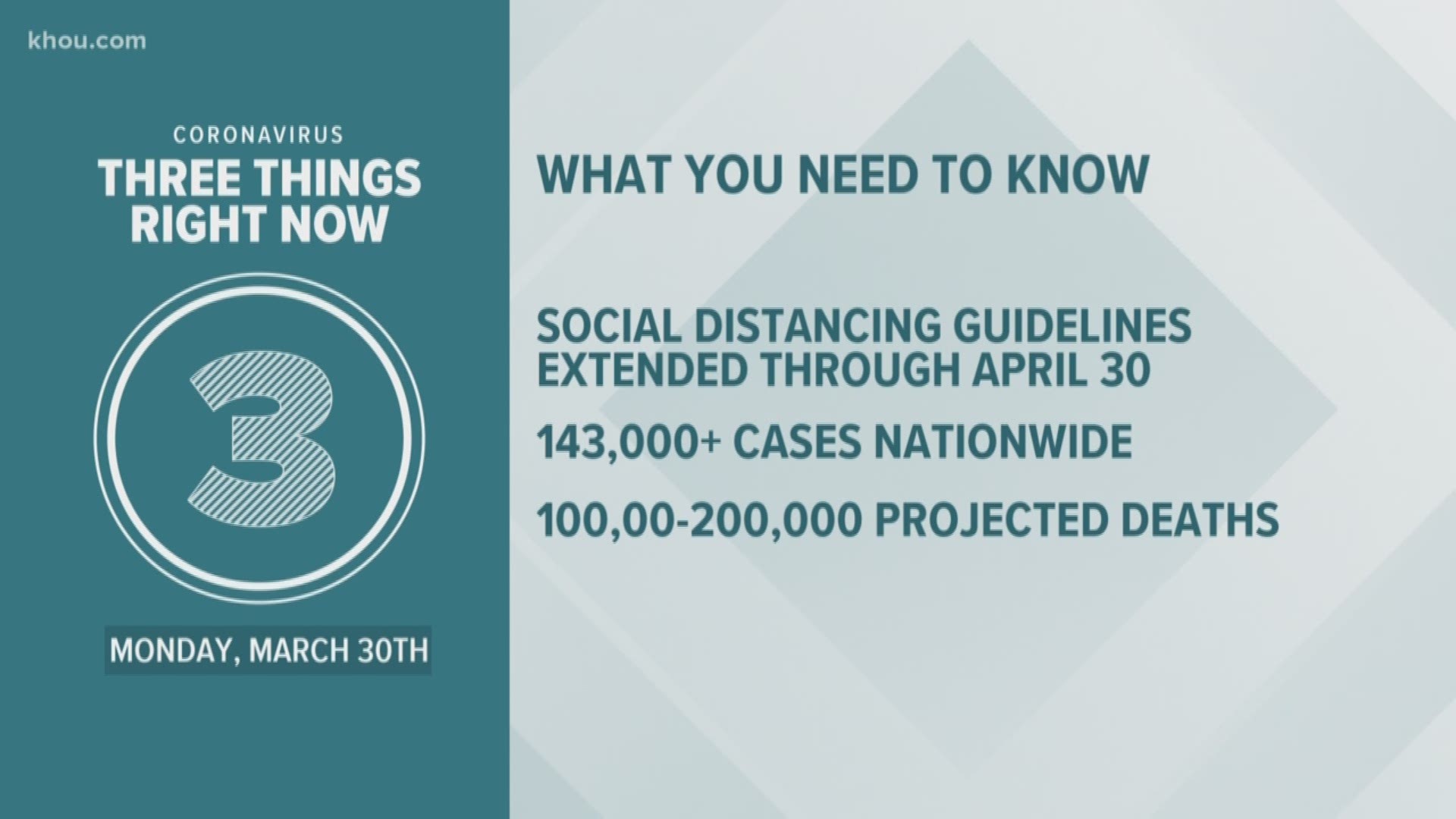HOUSTON — Two METRO employees recently tested positive for COVID-19, the transit authority announced Sunday.
The positive results came back for a bus driver and a METROLift dispatcher.
The dispatcher was last on the job on March 26, according to METRO. That employee does not interact with the public.
The other employee is a bus operator and was last on the job on March 25. The bus operator drove the 412 Greenlink Circulator route from 6 a.m. until 2:17 p.m. on the following days; March 9,10, 11,12, 13, 16, 17,18,19, 20 and 23. The operator also drove the 247 Fuqua Park & Ride from 6:18 a.m. to 9:17 a.m. on March 24 and 25.
METRO working to identify passengers
"Anyone riding the routes driven by the operator in the last 14 days should monitor themselves for possible symptoms, contact your health care provider as soon as you develop any symptoms, and self-isolate to avoid possibly exposing others, including refraining from using public transportation," METRO stated.
METRO is working to identify and notify anyone who rode the bus on these routes in the last two weeks.
Buses removed for cleaning, expect service changes
The buses used by the driver who tested positive have been removed from service for sanitation.
METRO says it will reduce some of its routes. All park and ride routes are suspended except those that serve the Texas Medical Center. Local bus routes will continue to run on a modified Saturday Schedule seven days a week. METRO rail will run with Sunday schedule. METRO's HOV lanes are closed.
Earlier this month, METRO reduce the number of available seats on its bus and rail to encourage people to sit farther apart. METRO also asks everyone to board at the back of the bus instead of the front, and it has waived all fares to avoid unnecessary contacts.
More from METRO:
We appreciate and greatly value our riders. However, we are working with the community at large to “flatten the curve” of the COVID-19 virus. To prevent or minimize its transmission on the transit system, METRO asks all riders to use the system only for essential trips at this time, practice social distancing when you do ride transit (i.e., stand or sit at least 6 feet apart, as recommended by the Centers for Disease Control, wash your hands for twenty seconds before boarding transit and after deboarding, cover your mouth when you cough or sneeze, or cough or sneeze into your elbow, avoid touching your eyes, nose, and mouth with unwashed hands, and stay home if you are sick). Additionally, riders should board buses only from the back door, and stand or sit no closer than six feet behind the driver. METRO has temporarily suspended fares to prevent unnecessary touches and contacts. Together, we will stop COVID-19.
METRO’s number one priority is protecting the health and safety of our customers, community and employees.
METRO’s thoughts are with these employees and their families, as they are with everyone affected by COVID-19. We thank our customers and employees for helping us navigate through this challenging time as safely as possible.
RELATED: Coronavirus updates: view live blog
-----
Coronavirus symptoms
The symptoms of coronavirus can be similar to the flu or a bad cold. Symptoms include a fever, cough and shortness of breath, according to the Centers for Disease Control. Some patients also have nausea, body aches, headaches and stomach issues. Losing your sense of taste and/or smell can also be an early warning sign.
Most healthy people will have mild symptoms. A study of more than 72,000 patients by the Centers for Disease Control in China showed 80 percent of the cases there were mild.
But infections can cause pneumonia, severe acute respiratory syndrome, kidney failure and even death, according to the World Health Organization. Older people with underlying health conditions are most at risk for becoming seriously ill. However, U.S. experts are seeing a significant number of younger people being hospitalized, including some in ICU.
The CDC believes symptoms may appear anywhere from two to 14 days after being exposed.
Human coronaviruses are usually spread through...
- The air by coughing or sneezing
- Close personal contact, such as touching or shaking hands
- Touching an object or surface with the virus on it, then touching your mouth, nose or eyes before washing your hands.
Help stop the spread of coronavirus
- Stay home when you are sick.
- Eat and sleep separately from your family members
- Use different utensils and dishes
- Cover your cough or sneeze with your arm, not your hand.
- If you use a tissue, throw it in the trash.
- Follow social distancing
Lower your risk
- Wash your hands often with soap and water for at least 20 seconds. If soap and water are not available, use an alcohol-based hand sanitizer.
- Avoid touching your eyes, nose, and mouth with unwashed hands.
- Avoid close contact with people who are sick.
- Clean and disinfect frequently touched objects and surfaces.
- If you are 60 or over and have an underlying health condition such as cardiovascular disease, diabetes or respiratory illnesses like asthma or COPD, the World Health Organization advises you to try to avoid crowds or places where you might interact with people who are sick.
Get complete coverage of the coronavirus by texting 'FACTS' to 713-526-1111.

